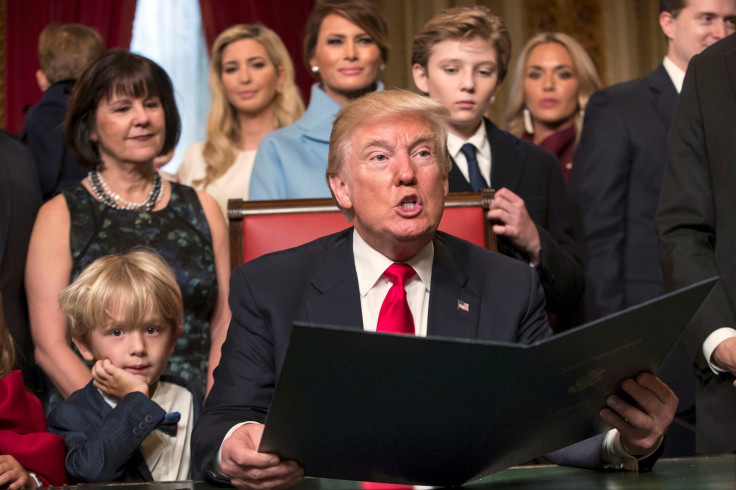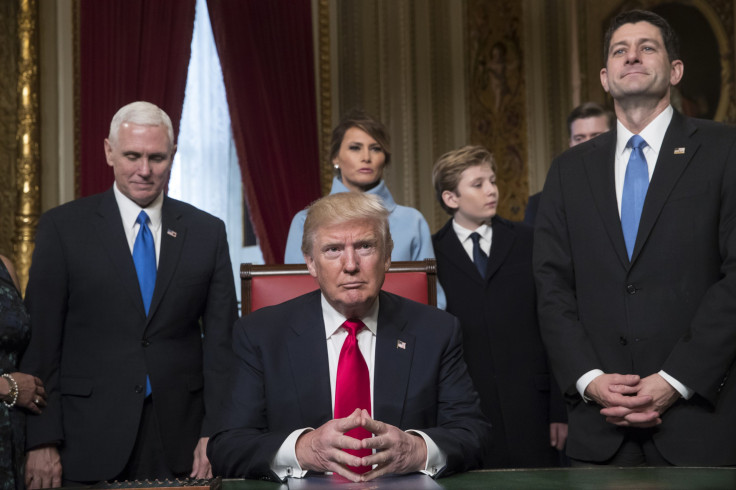What Will Trump Repeal? TPP, NAFTA, Obamacare All Included In Executive Orders

President Donald Trump got to work immediately following his inauguration Friday, signing executive orders to roll back former President Barack Obama’s landmark healthcare legislation, the Affordable Health Care Act best known as Obamacare. Now, as Trump begins his first "day of action" and full week as the 45th president of the United States, it seemed his top priority was to reduce his predecessor’s legacy through a series of repeals and executive orders set to take effect immediately.
Monday’s executive orders reportedly included an issuance on the trans-pacific partnership, a multinational trade agreement which includes 12 Pacific Rim countries, but not China. Trump said he would withdraw the U.S. from the Asian trade pact after repeatedly calling it a "disaster for our country" along the campaign trail.
"Instead we will negotiate fair, bilateral trade deals," Trump said about the trans-pacific partnership in a video posted to YouTube after winning the 2016 presidential election.
The president is slated to use executive orders to renegotiate the North American Free Trade Agreement, otherwise known as NAFTA, which creates a trilateral trade bloc between the three North American countries of Mexico, Canada and the U.S. Trump vowed to create major reforms to the 23-year-old trade deal which, if successful, could position the nation at the forefront of all trade negotiations moving forward.
It isn’t exactly clear what effect Trump’s executive orders could have in fully repealing some of the legislations and reforms Obama instituted during his presidency. His roll back of Obamacare, which came Friday night after a day of inaugural celebrations, leaves much to interpretation by the healthcare industry and incoming federal government. Though the order doesn’t fully repeal the healthcare initiative, it could be the first in a series of counter-legislation enacted by the new administration to eventually remove the law entirely.

"It's a mix of symbolic arm waving (lacking more specific and targeted details) and directional guidance to empower Trump administration officials to lean against more regulation on the margin," Tom Miller, resident fellow at the American Enterprise Institute, told CNN Sunday. "What remains unclear is how far they can go before they bump up against clearer statutory requirements and existing final regulations."
But the repeals don’t solely focus on eradicating Obama’s historic reign: Trump will reportedly issue a five-year lobbying ban for anyone who works in the administration. The president met with influential business leaders Monday morning to reveal his intention to reduce regulations by as much as 75 percent, while creating new punishments for companies responsible for moving jobs overseas and potentially for harming the environment.
© Copyright IBTimes 2024. All rights reserved.





















